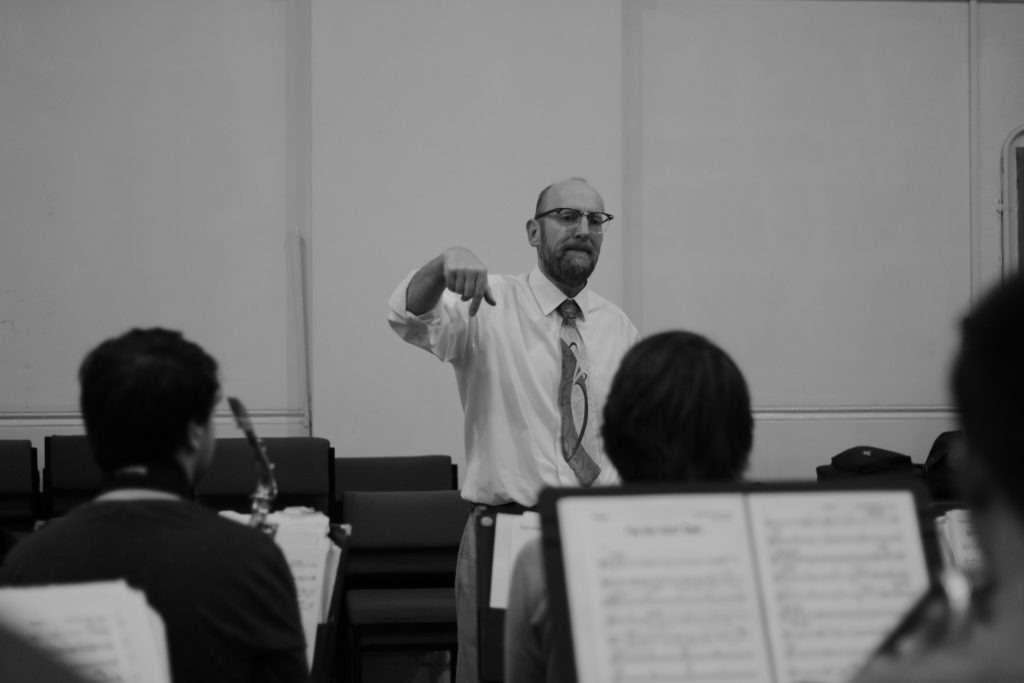
Pete Cook (FLCM FHEA LGSM MMus PG Cert) is currently taking private saxophone students. If you are interested in lessons with Pete, please get in touch using the contact form on this site or use the button below. Pete also teaches music theory, arranging, and improvisation.
After a 20-year tenure as a departmental head at London College of Music, Pete now has the capacity to take private students. He has extensive experience, working with students of all ages and experience levels from beginners in their first lesson to post-graduate university students. He is a member of the Royal Society of Musicians and has given saxophone tuition at Wellington College for many years. He enjoys a 100% success rate with students entered for grade exams. He is fully conversant with safeguarding and holds a current DBS certificate.
Former students have gone on to become soloists on the international stage and have taught at, amongst others, The Royal Academy of Music, Guildhall School of Music and Drama, and the Paris Conservatoire.
As a performer, Pete has played countless jazz and blues festivals all over Europe and Scandinavia. Performing highlights from the last few years include playing with Eric Clapton at the Shepherds Bush Empire; topping the bill at the Royal Variety Performance with Chas and Dave; Glastonbury Festival with Andy Fairweather Low; playing to a sold-out O2 Arena in support of Status Quo. Broadcasts include The One Show on BBC1 and The Paul Jones Blues Show and Mark Lamarr’s Shake Rattle and Roll on BBC Radio 2.
Pete writes…
A bit about my life as an educator.
I guess I’ve always been a teacher of sorts. When I worked in industry, it seems it was always me that was chosen to train apprentices. Since becoming a professional musician, I’ve always taught as well; it’s something I really enjoy and something I’m pretty good at. (I’m very proud that after all this time I’m still able to boast a 100% success rate with students entered for grade exams)
I began lecturing at Brunel University in January 1995 and taught at both FE and HE levels. I remained at Brunel for eight years before taking up the post of Head of Jazz at London College of Music in 2003, where I remained until 2022.
I currently give saxophone tuition at Wellington College where I’ve been since September 1998, and I’ve also taught on jazz summer-schools at Bryanston School, The Glamorgan Summer School and the prestigious Jamey Aebersold Summer School.
A bit about my philosophy.
Learning music is a wonderful, never ending voyage that is exciting, challenging, at times frustrating, but most of all rewarding. Research has shown that school children who learn a musical instrument do better academically. So if you’re learning to play (which I’m still doing after many years), stick at it; it’ll make your life richer in other areas and make you a more rounded personality. You find your approach to solving life’s problems changes as you develop your practice techniques.
I’ll be talking about effective practice in some of the later podcasts, as I have a strongly-held belief that the best players, are often really just the best practisers. An important point here is that practice is by nature a fairly solitary pursuit, so it’s really important that you get out there and play with other people as often as possible. One thing I can almost guarantee is that they’ll struggle with the same things that you do.
With regard to my teaching, it’s something I work as hard at as my playing, and, it has to be said, has been the subject of much reflection and navel-gazing over the last decade. It seems to have developed now such that it blends the very traditional (learning by rote) with the very forward thinking (Frosseth technique, NLP).
I’ll just add a couple of thoughts that I’ve found really useful:
1. Some of my best instrumental practice has been done away from my instrument. This works because:
- our brains aren’t that good at distinguishing between a visualised event and reality itself, and
- you tend not to worry about ‘getting it wrong’ when you’re not hampered by the technical demands of playing your instrument.
2. If you’re an improvisor, look no further than the music. The answers are all there. You’ll need to learn the language of improvisation in your chosen style, so learn some of your favourite players’ solos. If you learn to sing them first you’ll find them much easier to play. Don’t worry about being individual, (if you’re going to be you will be), but to this end it may help to study someone who doesn’t play the same instrument as you.
Whatever it is you want from studying music, I hope you go some way to achieving it. Above all, ENJOY IT!